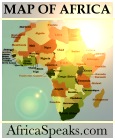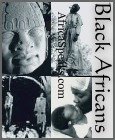The Greatest Argument Against War
Posted: Monday, September 17, 2001( Brian Dominick ) On Wednesday, September 12, I was witness to the greatest argument against war the North American Left has ever had.
I've never liked New York City. I've only gone there for the most compelling of reasons. When I awoke to the horrifying news of the incidents there on Tuesday morning -- still occurring, unbeknownst to anyone -- I already knew I would be going again. As a certified emergency medical technician, and a radical activist with street experience in mass casualty scenarios (through my involvement in the little-known field called "action medical"), it wasn't a matter of weighing options. The only questions were how? and how soon?
I have told my story in great detail elsewhere. It isn't a story about my own heroism. It isn't a story about life-threatening or life-saving adventure. I wish it were. If I'd had any opportunity for heroism, any opportunity to save lives, that would mean so too did thousands of others. We already know thousands of lives were saved. My story begins at a point when there was little remaining success in such endeavors. It is a story about tragedy.
My partner, Rachel, and I spent most of the day Wednesday working in the decontamination area at St. Vincent's Trauma Center, one of the main hospitals where blast victims and injured rescuers had been and were being taken. We had the opportunity to meet dozens of emergency workers, and treated several of them for minor injuries and contamination resulting from their participation in this most massive of rescue operations.
What we did not see is even more depressing. Our job was to strip and scrub victims when they were first brought in, so the soot they'd arrive covered in would not contaminate the rest of the hospital., then deliver them to the ER. Unfortunately, despite rumors (even over official channels), these rescued victims simply weren't showing up. While the rest of the world was hoping and praying more rescues would be made, it was becoming ominously obvious at St. Vincent's that there would quite simply be few more survivors, if any.
In all, I would meet and talk to dozens of EMTs, hospital staff, firefighters, and other emergency workers. There was by now more exhaustion than dust in the air. Both tasted identical. One doctor who sat down near us was literally surprised by how it felt to actually sit down. It had been 24 hours, he announced, since he hadn't had his full weight on his feet. One nurse complained that her feet were so sore she was having trouble standing, much less walking -- I could only imagine.
What I didn't hear, at all, were emergency workers of any kind clamoring for retaliation or war. In fact, it occurs to me that one of the only groups of people in this country which isn't demanding vengeance are the very people tasked with taking care of survivors, and recovering the thousands of bodies left in the mess.
Among rescue and medical personnel in New York, the focus was on saving lives, not on taking more. This is certainly due in part to the necessity of staying focused on the job at hand, even during much-needed breaks. However, I think this restraint is also being shown because few people involved in the rescue efforts can bring themselves to wish upon others what they are currently going through.
That night, we milled around for a while, checking in with some EMTs to see how they were holding up. We actually engaged in a very normal, generic medical conversation with one EMT. Anything for a distraction...
It was during such a conversation that Senator Chuck Schumer passed by us while we sat on the steps to the ER. He stopped and turned to us. "I know what you've all been doing," he said. "You're all heroes." Four or five of us just stared back at him. I'm not sure about our newfound friends, but Rachel, Meredith and I didn't feel like heroes. It was odd to be referred to as such. We didn't know what to say. No one spoke. He didn't seem to mind. He turned and left.
After a little discussion, and a few cups of coffee handed over by smiling volunteers, we decided to go deeper into the security zones with us. We headed down on foot. We wouldn't need to consult a map -- smoke still rising skyward marked our heading for us.
It was well over a mile to Ground Zero. Halfway there, a police officer put us in a DPW truck and told the drivers to deliver us to the site. I was no longer surprised that, for this moment in time, not only were cops uninterested in bashing my head, they would go out of their way to help us try to be helpful. The oddities were piling up with the rubble. Many of them were welcome.
What we found at The Site was an incredible scene. A light grey ash was met by reflections and glares of floodlights overhead, giving every still surface the appearance of having been lightly snowed upon. Where water from fire hoses or water main leaks had come in contact with this substance, it created small pools that resembled slush. I almost shivered by association, but alas we had had beautiful weather all day, and it remained quite warm even after dark. In fact, it felt oddly warmer near the site than it had at the hospital.
Here the National Guard presence was quite obvious. We hadn't seen many Guardsmen before arriving at The Site. After asking around, we made our way to a place where dozens of ambulances were stationed in front of a school building. Here again we had the sense of being useless. Not because we weren't official or connected or skilled enough to help -- but because there was simply nothing for EMS to do. Few if any survivors were being recovered. The scene was a grim convention of chauffeurs awaiting passengers who were simply not going to arrive.
It was at The Site that the extent of this tragedy finally began to settle in on me. Until then, as for most people in the country and around the world, this monumental event had been a story, just like any other major piece of news. Granted, I had come all this way, expecting to experience the tragedy for myself, but it was difficult to accept that out of so many thousands of people known to have been in or around the buildings, so few were going to emerge. EMS workers milled about everywhere, attempting to ignore the fact that we were being ignored by those excavating the site, who simply didn't require our specialized assistance.
Fire crews marched into the misty air floating over the rubble, toward the flood lights and away from us. I wanted to follow them, but there was a limit to where my EMT credentials would allow me access. Most of what they were pulling out was concrete. That which was organic was far more likely to be a corpse or a body part than a living human being.
One of the things I noticed about Ground Zero was that pretty much the only people not wearing respirators or masks of some kind were the firefighters themselves. Nearly all EMS, National Guard and police personnel were covering their faces for protection from the dust. It was no secret that all sorts of horrible chemicals and substances were floating around in all that particulate debris. Yet almost none of the firefighters seemed to be wearing respiratory protection.
After thinking long and hard about that, I decided it might well be a demonstration of solidarity for their brethren trapped below. All day one got the impression that, for the firefighters, the sense of urgency was higher than for most everyone else. They all knew people buried beneath the rubble. Additionally, they identified with them very strongly. It reminded me of the bond among action medics, and the way I've seen my fellow action medics behave in the streets when medics were injured or in trouble.
We wandered into the command center -- the school cafeteria -- and made one last attempt to get involved through official channels. There the EMS dispatch officer expressed more gratitude, but explained that "freelance EMS people" were being told to go home. He saw our St. Vincent's security passes and inquired about the status there. I knew he didn't want to know "how many" patients were being brought in, like everyone else did. He knew that number all too well. We just told him St. Vincent's was running smoothly, and he seemed glad to hear it.
I sat down at a table, and noticed a piece of paper with a color photo attached to it. The picture was of a young woman in her early twenties. It had her name and other identifying information on it. Her family had managed to pass it along this far. She was missing. And like everyone else who was missing, she was presumed dead.
We didn't want to leave New York, but staying there had become too painful for me. Being unable to help kept me acutely aware of just how terrible this tragedy was. I didn't think I could stand it anymore.
The drive home was as fast as the drive down. It was more silent, though. We alternated between listening to the news -- which we'd hardly done all day -- and listening to music CDs. A million thoughts stewed around in my head. It felt good to have been able to do something, but in context, it seemed we'd done almost nothing at all. For medics, there simply wasn't enough to be done.
We listened to irate voices on the news, trying to reconcile the attitudes of those calling for vengeful murder, with those rescue workers struggling for life. This new wave of bloodlust, it occurred to me, is more a result of feeling helpless, than of anything rational or reasonable.
When we cry out for violence, we are indeed asking our leaders to do to other civilians and rescue workers precisely what has happened to us here. Let us use great caution and prudence in our solutions to this horror. We owe that to our counterparts the world over -- people who by no means deserve to suffer the way we are now.
I think most people, having seen what I just have, would be hesitant to call for an expansion of this horror. Our country's first-hand experience with the reality of warlike violence will prove, in the end, our best leverage against engaging in yet another senseless bloodbath. Now that we have felt the pain our nation has continually and relentlessly dealt other nations, we have a unique opportunity to learn the lessons of the images and ravages of war even before we start.
[Brian Dominick is a street first aid instructor and an active street medic, affiliated with the NorthEast Action Medics Association (NEAMA) and the Radical Emergency Squad (RESQ). Besides being a medic, Brian is a political commentator, a website developer/editor for ZNet (www.zmag.org), and a community activist.]
http://www.zmag.org/dominickcalam.htmPrinter friendly version
Send page by E-Mail

Previous Page | Zimbabwe Watch | Historical Views | Home
NOTICE: All articles are the copyright property of the writers. In accordance with Title 17 U.S.C., section 107, some material on this site is provided without permission from the copyright owner, only for purposes of criticism, comment, scholarship and research under the "fair use" provisions of federal copyright laws. Visit: http://www.law.cornell.edu/uscode/17/107.shtml for more details. If you wish to use copyrighted material from this site for purposes of your own that go beyond 'fair use', you must obtain permission from the copyright owner.










